Term 1 Unit 7 | 6th Science - Computer - An Introduction | 6th Science : Term 1 Unit 7 : Computer An Introduction
Chapter: 6th Science : Term 1 Unit 7 : Computer An Introduction
Computer - An Introduction
Unit 7
Computer-An
Introduction

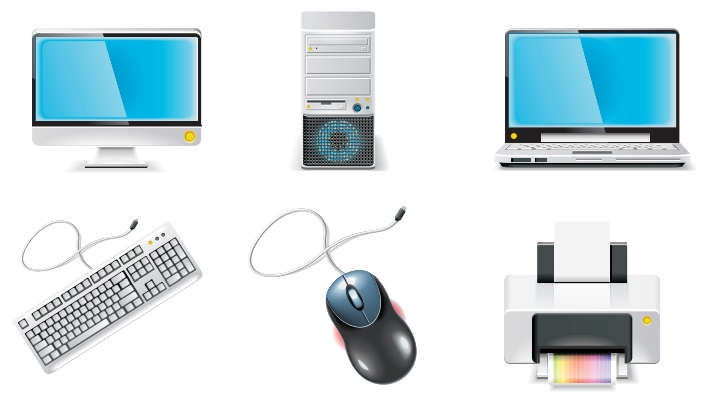
Learning Outcomes
* To
know about the computer.
* To
know the history of computer.
* To
understand the growth and development of computer.
* To
understand the generations of computer
* To
understand the types of computer.
* To
apply the knowledge of computer in various fields in our day todaylife.
(Boys and girls of
standard VI were playing in the playground).
Siva: Hey Salim, I saw your dad coming with a
big parcel yesterday. I guess you could have bought a new television, Am I
right?
Salim: It’s not a TV Siva. We bought a new
computer.
Malar: Oh, I see. computer! I had seen it in
Textile shop used for billing.
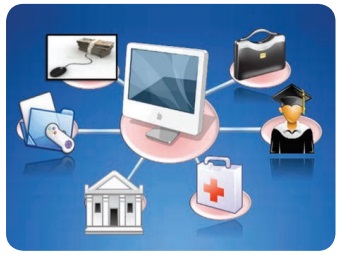
Selvi: Malar, not only in textile shops, but also it’s used in Railway stations, Banks, ATM’s and in many places. It is used even in our local post offices. Nancy: Hey! I had seen it in my school.
Salim: Is it
only in your school? Nancy, I think your father is also having a
computer.
Nancy: Is my father having a computer?! Without
my knowledge? I’m sure that my father doesn’t have computer. He has only a
mobile phone.
Salim: That’s what I say your father’s mobile phone is also like a computer.
Nancy: Oh no Salim? What do you mean? How
can a mobile phone compared with a computer?
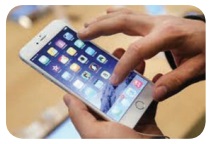
Salim: Nancy, we usually think that
computer should be like a big TV and a box attached with it, But computers are
available in different shapes. The works which are done with a computer can
also be done using a smart phone. There may be difference in their speed, but
their operations remain the same. The big computers are shrunk into small smart
phones nowadays because of the technological development. Most of us think that
smart phones are only to make calls because of its’ handy look But it isn’t so.
Selvi: What about laptops and tablets?
Are they same like the computers we usually think of?
Salim: Yes, They are all the same. These
are different types of computers. But their performance vary according to their
capacity.
Siva: That’s ok Salim, why do you need a
computer in your home? What will you do in that?
Salim: I can use it to draw, paint, play
games and I can learn and develop my general knowledge.
Selvi: Salim, you know more about
computers!
Salim: I know very less about computers.
As my dad uses computer in his office, he knows much about it. I shared very
little of what I have learnt from my dad.
(All
the children stood up when the teacher came and stood near them)
Teacher: What is going on?
Children: We are discussing about the computer
sir.
Teacher: Oh, I see, that’s nice. I will explain
you in detail. Firstly I will explain you about what is a computer? Computer is
an electronic device that process the data and Information according to our
needs. We can save the data and convert it into information. Computers are used
in many ways.
Malar: We are eager to know who has invented
the computer?
Teacher: In the beginning of 19th century, Charles
Babbage, a professor in Mathematics has designed an analogue computer. He is
known as the father of computer.
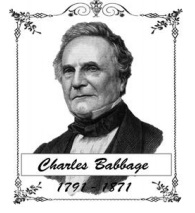
The basic structure
designed by him is being used in all computers. Similarly, Augusta Ada Lovelace
is admired as the first programmer as she developed essential commands for the mathematical
operations.
Nancy: Sir, can you tell us which device was
used before the invention of computer?
Teacher: In the early stage, there was no
computer. Initially the people used a tool called abacus for calculations.
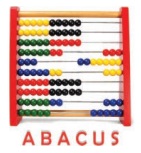
Later, they started
using a device called calculator for calculation.
Selvi: Wow! It’s really interesting sir, then
when did computers come into use Sir?
Teacher: Good question Selvi. Computer didn’t
come directly from abacus. The computers that we use today belongs to fifth
generation.
Nancy: Oh! was there four more generations
previous to this?
Teacher: Yes, Nancy you are correct.
Siva: Sir! Can you explain us about the five
generations?
Teacher: In First generation computers, they used
Vacuum tube
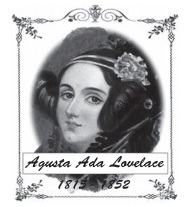
In Second
generation computer, they used Transistor
In Third generation
computer, they used Integrated Circuit
In Fourth
generation computer, they used Micro processor
In Fifth generation
computer - Now they use Artificial Intelligence
Selvi: Sir, we are eager to know more about the
present computers which we use sir?
Teacher: Data and information are the two
important elements in computers.
Malar: Sir, What is meant by data?
Siva: Then, what is application software?

Teacher: Data is the information that has to be
processed. It cannot be used directly by us. Generally, they are in the form of
numbers, alphabet and images.
Siva: Sir… then what is information?
ENIAC
(Electronic Numerical Integrator and Computer) was the first Computer
introduced in the year 1946. This is the first General purpose computer.
Teacher: Information is a form of processed data.
Siva: What is software and hardware, Sir?
Teacher: The commands or programs that are used
in computer are called Software. This software can be divided into two types.
1. Operating
software
2. Application
software.

Nancy: What is Operating Software?
Teacher: Software that is used to operate
the computer is called operating software. I think you are familiar with
Windows and Linux
Teacher: Application software is a software that
is used to run a particular program. For example, the software used for
painting, playing games in computer.
Nancy: Oh! I have learnt much information about
computers today sir!.
Malar: Ok Sir, then what is hardware?
Teacher: The parts that are available in the
computer that helps the software to works is a hardware.
Salim: Sir, please tell us more about it
Teacher: Yes, sure I will. Whatever we want to
send to a computer is sent through a device called input device. For example,
the keyboard, mouse and other input devices.
The data or
information that has been sent to the computer are displayed out or reproduced
through some devices these are called as output devices. For example, printer,
monitor and so on.
Nancy: Ok Sir, then what is CPU?
Teacher: It is the central processing unit. You
will learn and understand more about CPU in your higher classes.
All Children
together: Thank you so much, Sir.
Today we have learnt and understood more information about
Related Topics